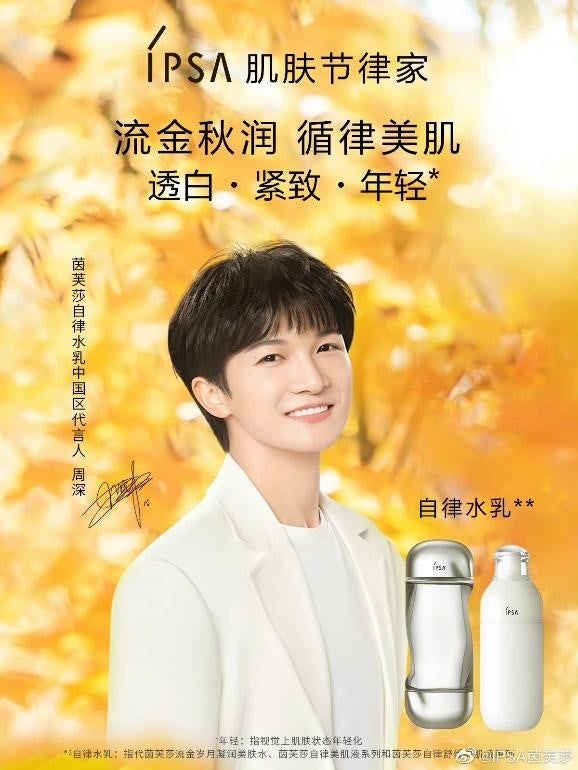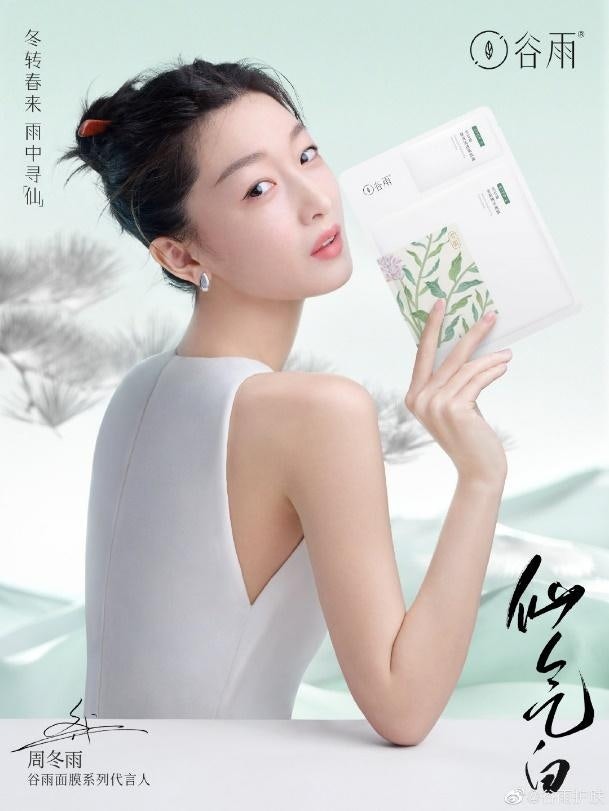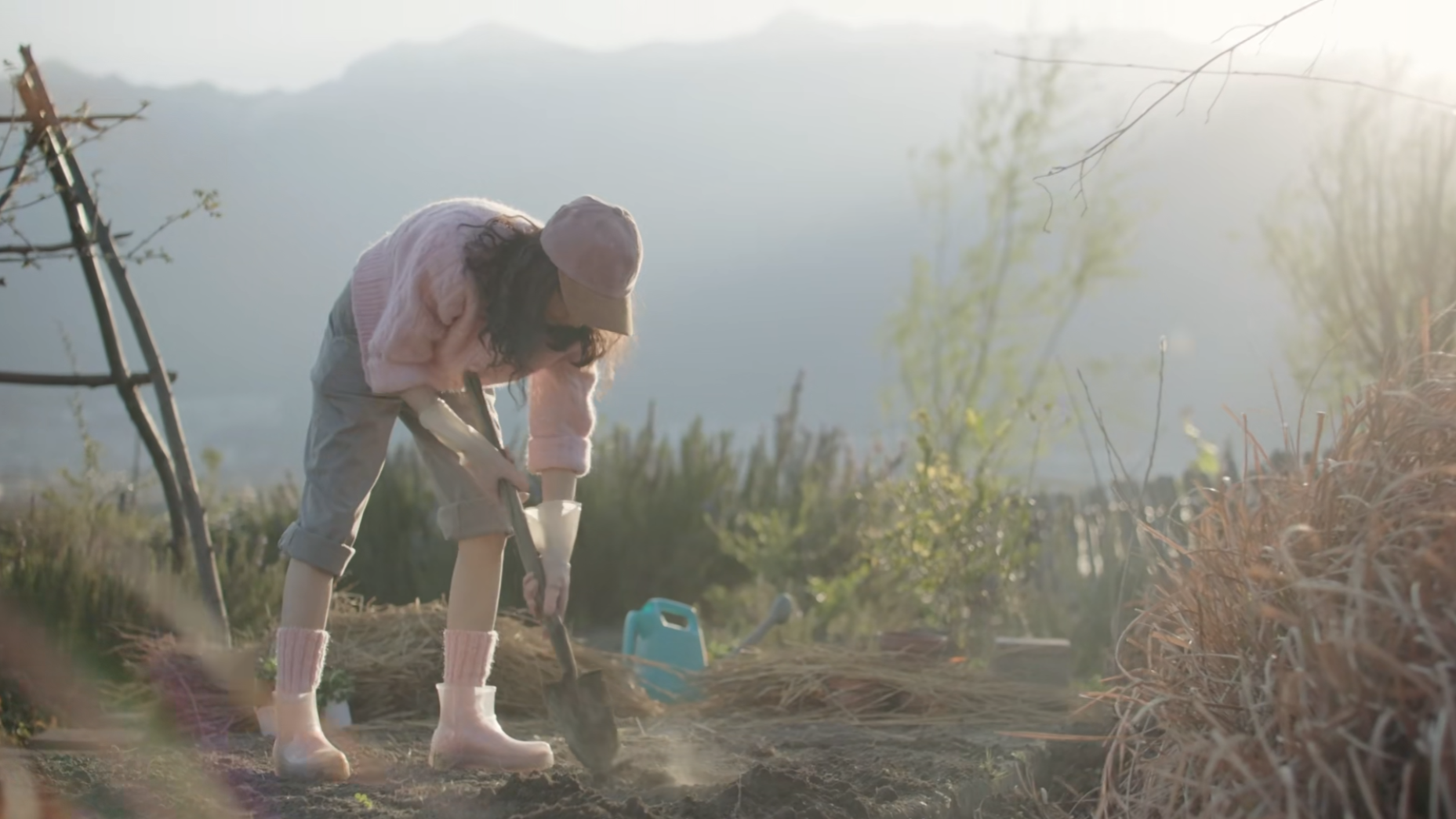In a bid to better connect with young, heritage-minded consumers, domestic beauty and lifestyle brands are embracing solar term (节气, jieqi) marketing, a concept based on China’s ancient lunisolar calendar that divides the year into 24 periods.
Compiled initially to guide agricultural activities according to season-defining phenomena and the sun’s position in the zodiac, the system evolved into a cultural calendar for social gatherings and community rituals.
It’s a ready-made marketing roadmap that brands are using to inject a sense of nature into beauty routines.
C Beauty Banks On Times Gone By#
C-beauty label Timage issued an influencer content series in the third quarter of 2022 based on the theme of liqiu (立秋), the 13th solar term, which runs August 8-23 and signals the beginning of fall.
Meanwhile, Shiseido-owned Japanese skincare brand IPSA produced a weather broadcast with its brand ambassador Zhou Shen to announce qiufen (秋分), the 16th solar term that begins on the fall equinox, and publicize the need for moisturizing during the fall’s harsher weather.
Smartphone brand Vivo also tapped into the narrative by posting a campaign during bailu (白露), the 15th solar term that begins on September 8 and covers the transition from summer to fall, highlighting how its X80 Pro model could best capture the fall mist.

Grain Rain, a C-beauty brand whose name was inspired by the eighth solar term guyu (谷雨, meaning grain rain or early crops), which starts on April 20, launched a spring-inspired campaign fronted by actress Zhou Dongyu in April, 2022. It riffed on the solar term’s traditional association with herb-picking to reinforce the label's herbal skincare branding.
Chinese telecommunication giant OPPO also used the opportunity of guyu for a marketing campaign, inviting photographers to share springtime photos they shot using the brand’s latest model, the OPPO Find X5 Pro.

Good Old Days#
That numerous brands are using the ancient solar calendar as a trendy seasonal marker reflects a broader revival of heritage-related products, especially among younger consumers, in China.
Gen-Z’s favorite Chinese video platform Bilibili reports that the number of its users identifying as lovers of traditional culture exceeded 177 million in 2021, of which young people between the ages of 18 to 30 accounted for more than 70 percent.
This growing audience is consuming a range of content focused on traditional culture, from ancient crafts to costume styles and historical makeup.
Many international beauty players have over the past few years experimented with various ways of appealing to Gen-Z’s growing desire to explore native cultural identities, such as China-inspired, limited-edition products.
For instance, in 2022, Shu Uemura rolled out a campaign paying tribute to the art of Dunhuang, Gansu province, a northwestern Chinese town known for its Silk Road-era Buddhist cave paintings; Bobby Brown marketed a foundation made with the fungus cordyceps used in traditional Chinese medicine; and Sisley Paris designed a phoenix-themed lotion bottle for a Tmall shopping festival.
Lost In Translation?#
Despite these recent marketing efforts, international brands’ nods to China’s heritage have rarely transcended a Western-centric worldview.
The growing presence of native cultural concepts like the 24 solar terms in marketing, along with the rise of consumer boycotts of Western brands for perceived shortcomings, show that China’s younger generations of consumers are ready for a new approach to heritage marketing.
Not only should brands demonstrate an understanding of contemporary Chinese aesthetics, but they should also extend this appreciation for native culture to their communications.
Brands have a good opportunity to talk to Chinese consumers in their own cultural language, and if they get it right, the reward would be better engagement.
In the past, indigenous concepts like solar terms may have influenced farming schedules and family meals, but today they serve as Gen-Z’s aspirational guides, for everything from food and beauty to their self-identity.
